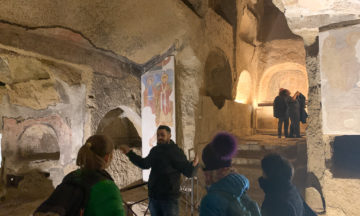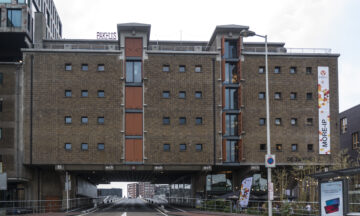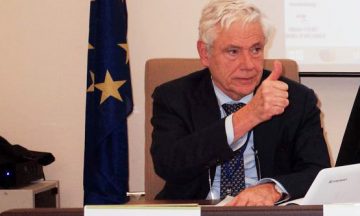Archive

20Sep
Human Centred Values Co-creation in Cultural Heritage Adaptive Reuse
The implementation of the circular model to urban regeneration strategies requires a paradigm shift in which all economic values co-exist and co-evolve with social/human values, thus allowing the implementation of a human-centred strategy. Therefore, the new human-centred circular regeneration strategies must consider the impacts they have not only in terms of the physical transformation of space but also on the social level.

19Sep
Best Practices of Circular Governance in Cultural Heritage Adaptive Reuse
Circular governance is a necessary precondition for sustainable adaptive reuse of cultural heritage. The database of good practices – presented on the final CLIC Conference of the Horizon 2020 project CLIC “Circular models Leveraging Investments in Cultural heritage adaptive reuse” (online on Wednesday and Thursday 22-23 September 2021)

17Sep
Iriss – Cnr, economia circolare per la rigenerazione del patrimonio culturale
Iriss – Cnr, economia circolare per la rigenerazione del patrimonio culturale

17Sep
Iriss-Cnr, economia circolare per la rigenerazione del patrimonio culturale
Iriss-Cnr, economia circolare per la rigenerazione del patrimonio culturale

17Sep
Iriss-Cnr, economia circolare per la rigenerazione del patrimonio culturale
Iriss-Cnr, economia circolare per la rigenerazione del patrimonio culturale

17Sep
Iriss-Cnr, economia circolare per la rigenerazione del patrimonio culturale
Iriss-Cnr, economia circolare per la rigenerazione del patrimonio culturale
17Sep
Iriss-Cnr, economia circolare per rigenerare il patrimonio culturale
Iriss-Cnr, economia circolare per rigenerare il patrimonio culturale

17Sep
Iriss-Cnr, economia circolare per la rigenerazione del patrimonio culturale
Iriss-Cnr, economia circolare per la rigenerazione del patrimonio culturale

17Sep
Iriss-Cnr, economia circolare per la rigenerazione del patrimonio culturale
Iriss-Cnr, economia circolare per la rigenerazione del patrimonio culturale

17Sep
Iriss-Cnr, economia circolare per la rigenerazione del patrimonio culturale
Iriss-Cnr, economia circolare per la rigenerazione del patrimonio culturale
